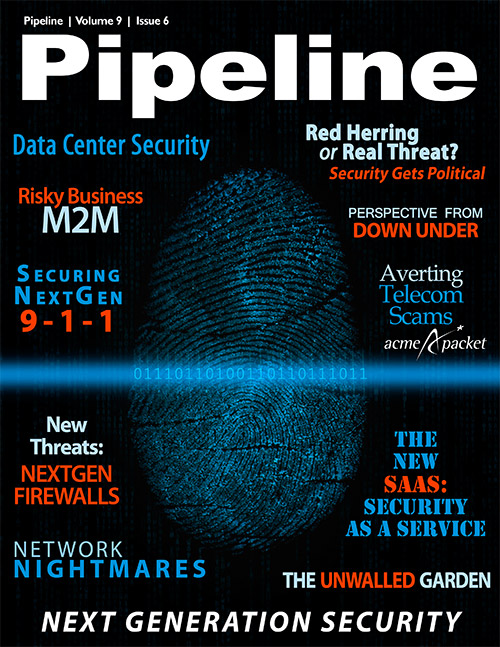SaaS Security: The Sensible Solution
Frost & Sullivan’s survey of 300 mobile and wireless decision makers revealed that while 35 percent of businesses have deployed MWFM applications, many have delayed adoption because they lack the in-house expertise to deploy.
SaaS Comes to Play
Industry analysts and their numbers might not all agree, but the impressive growth opportunity in the SaaS market is an easy call. Gartner predicts SaaS-based delivery will see steady growth
through 2015, and that global revenue will reach $22.1 billion.
“Customers are starting to buy and deploy integrated security solutions — including firewalls with mail and gateway antivirus, IPS, DLP, mobile device security, and application control — instead
of standalone solutions, which is driving up the overall network-security market but weighing down on sales of standalone content-security gateways,” said Jeff Wilson. “Security as a Service and
hosted security services are outgrowing product markets, and until recently, standalone content-security product sales were outgrowing integrated appliance sales.”
Revenue for SaaS content-security gateways is up more than 50 percent year-over-year and is forecast by Wilson to grow 23 percent from 2011 to 2016. “Any serious player in the content-security
market who doesn’t currently have an SaaS offering is missing out on the fastest-growing segment,” he said.
Cisco is the leader in the SaaS segment and has a strong content-security offering, including their IronPort Hosted Email Security and Cisco ScanSafe Web Security cloud services, which promise to
cut spam by 99 percent. McAfee, Websense and Symantec are also leaders in the content-security sector.
SaaS offerings are also attractive for enterprise because they are easily scalable for specific vertical markets. In the case of the medical industry, which is currently undergoing a
multi-trillion-dollar digital and communications revolution, service providers see a real opportunity to dive headlong into the healthcare security vertical. Verizon has just released a cloud
security portfolio for the healthcare industry that is designed to meet U.S. federal Health Insurance Portability and Accountability Act (HIPAA) requirements for safeguarding electronic protected
health information (ePHI).
SaaS Goes Vertical
Verizon is one of the first top-tier providers to offer these specialized services, which will include the secure storing of ePHI in its Terremark data centers. With the cloud, healthcare
professionals can collaborate, share patient information in near real-time and store large volumes of data for electronic health records and radiology images. In addition healthcare organizations
can centralize their data so they can operate more efficiently.
Available immediately, the new portfolio offers Verizon clients in the healthcare, insurance, pharmaceutical, and supporting industries a full range of public and private cloud services that meet
applicable physical, administrative and technical security controls under HIPAA.
“Today’s healthcare provider is faced with the enormous and costly burden of protecting personal health information for patients,” said Dr. Peter Tippett, chief medical officer and vice president
of Verizon’s health IT practice. “To address this need, we are bringing to market a suite of cloud services that enables healthcare providers to secure patient data while offloading the burden of
building and managing their own data centers. By enabling a connected healthcare system, we intend to transform U.S. healthcare delivery.”



















